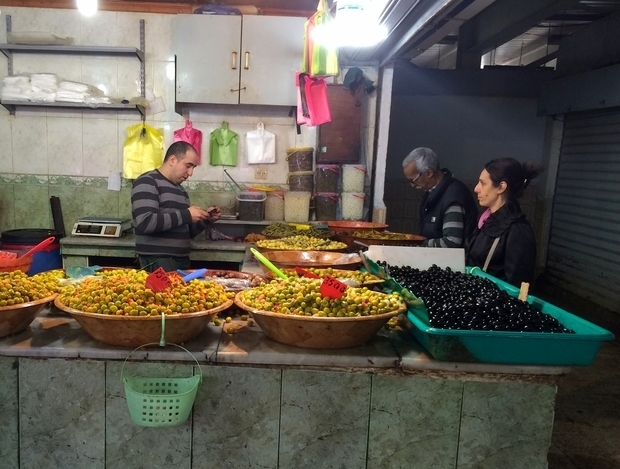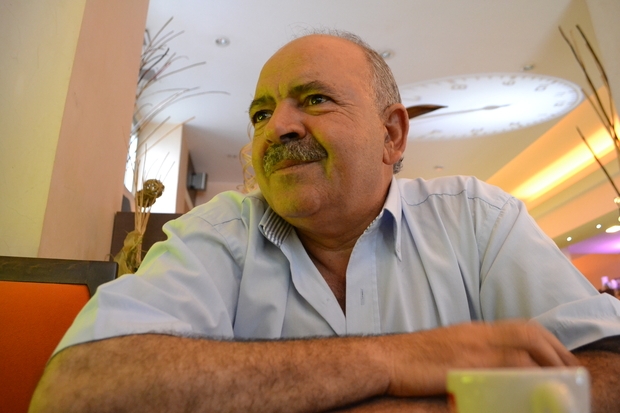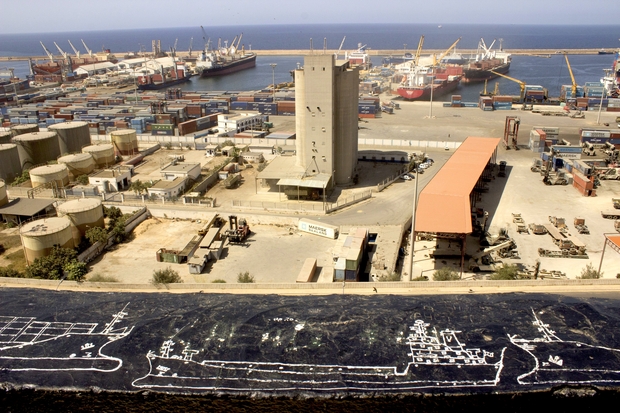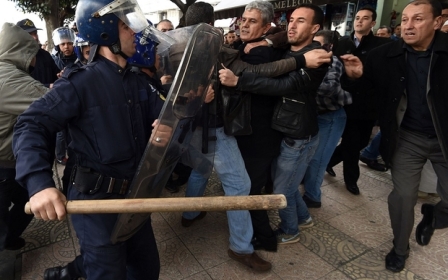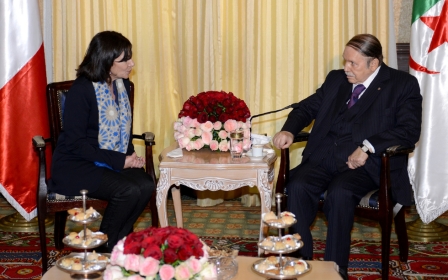Oil woes: In Algeria, the time for 'sacrifices' has come
ALGIERS – A potent combination of inflation, currency depreciation, and the sharp decline in oil prices has hurt the Algerian economy, with many having to cut back on food and expenditures.
“With our three children, it is really hard to get through. Now, when I go to the butcher, I don’t buy chicken legs anymore. I take only the wings, which are less expensive. I’ve also given up on going to the hairdresser and renewing my contact lenses,” said Saliha, a mother of three and an employee for a private company in Algiers.
With some estimates claiming that as much as 97 percent of Algeria’s economy is dependent on oil and gas revenue, the dramatic fall of oil prices (which have seen crude tumble 75 percent since the summer of 2014), has dug a deep hole in the country’s finances. The World Bank has calculated that the budget deficit has almost doubled between 2014 and 2015, from 6.2 percent to 11.5 percent.
From hairdressing to coffee
This year started with a series of government measures, known as Finance Law 2016, that have been deeply unpopular – raising VAT for some products and services like mobile phone contracts, as well as raising taxes on imported products such as bananas.
This has led to ordinary Algerians being squeezed on two fronts - even as the economy has been doing poorly, prices have been jumping across all sectors. Seeing a doctor is now 500 dinars ($4.65) more expensive, while coffee shops and barbers have increased their prices.
Still, according to the economist Hassan Haddouche, “the worst is yet to come”.
“If people did not like the Finances Law 2016, they will hate the next one”, he told MEE.
“For now, we [Algeria] are protected by our [foreign currency] reserves, but in three or four years, we will be short of money. And we will find ourselves in the situation of Venezuela, which cannot exploit its important oil resources because it has stopped attracting foreign capital. This is how you get to the worst-case scenario: cessation of payments, resorting to the money machine to pay civil servants, widespread shortage, and hyperinflation.”
An anaesthetised society
Mustapha Zebdi, president of the Consumer Protection Association, told MEE that “people are scared”.
He believes that this uncertainty is to blame for the failure of the newly introduced consumer credit, only available since last January, to take off as expected.
Smain Kouadria, deputy of the Party of the Workers (PT), Algeria's socialist party, who tours the country every Saturday to “take the temperature”, notes that “discontentment and fear” are affecting all social categories, “from the unemployed to the executives”.
This has already provoked "movements of protest" against the deterioration of living standards, he added in reference to a rash of strikes that took place last year.
From gas-station attendants to public health sector employees in the east, to milk distributors, everyone in the country is hurting economically, according to Kouadria.
“For the time being, society is anaesthetised because the state is able to continue subsidising some goods and to maintain social peace”, explained economist Haddouche.
“But the pauperisation of society is unsolvable. Algeria risks facing a widespread social explosion even before the exhaustion of its [oil] reserves. Because society will not be able to continue accepting the sacrifices that it will be asked to make.”
The government is also starting to feel the pressure.
The word “sacrifice” has now been dropped for a 24 February presidential press release. In the original statement, President Abdelaziz Bouteflika called on the Algerians “to follow the example of the glorious shuhada [martyrs of the Liberation war] who snatched the independence of the country at the cost of heavy sacrifices”, in reference to the history of Algeria, which has always been made “in an unfavourable economic and security context”.
Viral panic
Last week, a panic broke out in Algeria after news broke that the government would suspend its free trade agreement with the European Union (EU) and the Arab zones, hitting export and import businesses hard.
Brahim, who works in meat processing, told MEE that this meant his products would become 40 percent more expensive which would "destroy everything which I have been building for years”.
The panic, which followed the circulation of a leaked note, went viral. Two days later authorities denied that the free trade deal had been suspended, but Brahim says the mixed signals are still proving devastating for business.
“Despite all this mess, those in power did not deem it necessary to issue a disclaimer or communicate clearly, so we still don’t know what to believe. It is terrifying,” he added.
Confrontation between two ruling trends
A businessman from Oran, an important coastal city that is located in the north-west of Algeria, whose goods have been blocked in the harbour for several weeks after the government’s decision to limit imports, told MEE: “Actually, we don’t understand anything now. Decisions are taken but nobody is informed. We are not going to improve the economy like this.”
For Slim Othmani, general director of juice producer and distributor Nouvelle Conserverie Algerienne, the economy is suffering due to “a confrontation between two trends in power: That of the ultra-conservatives, who want to keep the status quo, and that of the modernists, who suggest solutions to get out of the crisis”.
The captain of industry, who also presides over the Cercle d'Action et de Réflexion Autour de l'Entreprise (CARE), an economic think tank, says that economic decisions are being taken “without thinking of their impact".
"The impact is on purchasing power first, because the taxes will automatically be reflected on prices. Then on competitiveness. Because if a company pays more for its inputs, it will be less competitive and that will directly impact our exports."
The former minister of finance, Abdellatif Benachenhou, invited to speak by CARE last week, insisted: “We have to be able to live with an oil barrel at $50. We also have to learn the lessons from the past to avoid dealing with the crisis the way we did in the 1990s.”
Back then, the IMF had compelled Algeria to adopt a tough programme of austerity in exchange for a rescheduling of its external debt.
“But when I hear political leaders talk as if they were convinced that the price of oil will go up again, I am very worried,” the former minister added.
Translation from MEE French.
Middle East Eye propose une couverture et une analyse indépendantes et incomparables du Moyen-Orient, de l’Afrique du Nord et d’autres régions du monde. Pour en savoir plus sur la reprise de ce contenu et les frais qui s’appliquent, veuillez remplir ce formulaire [en anglais]. Pour en savoir plus sur MEE, cliquez ici [en anglais].


